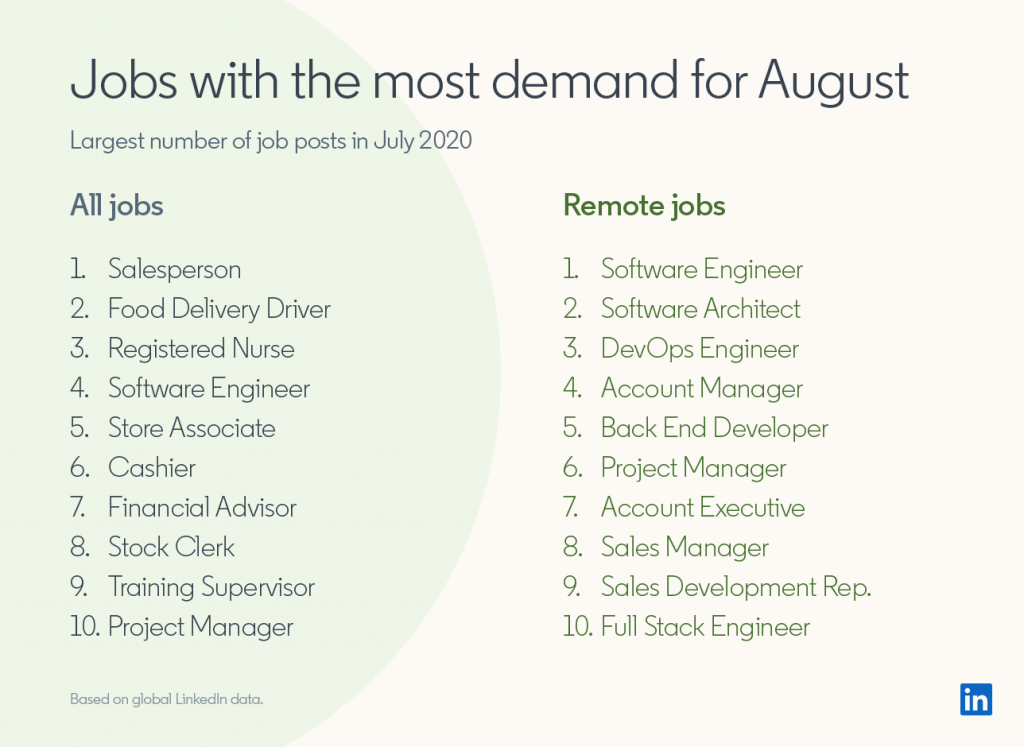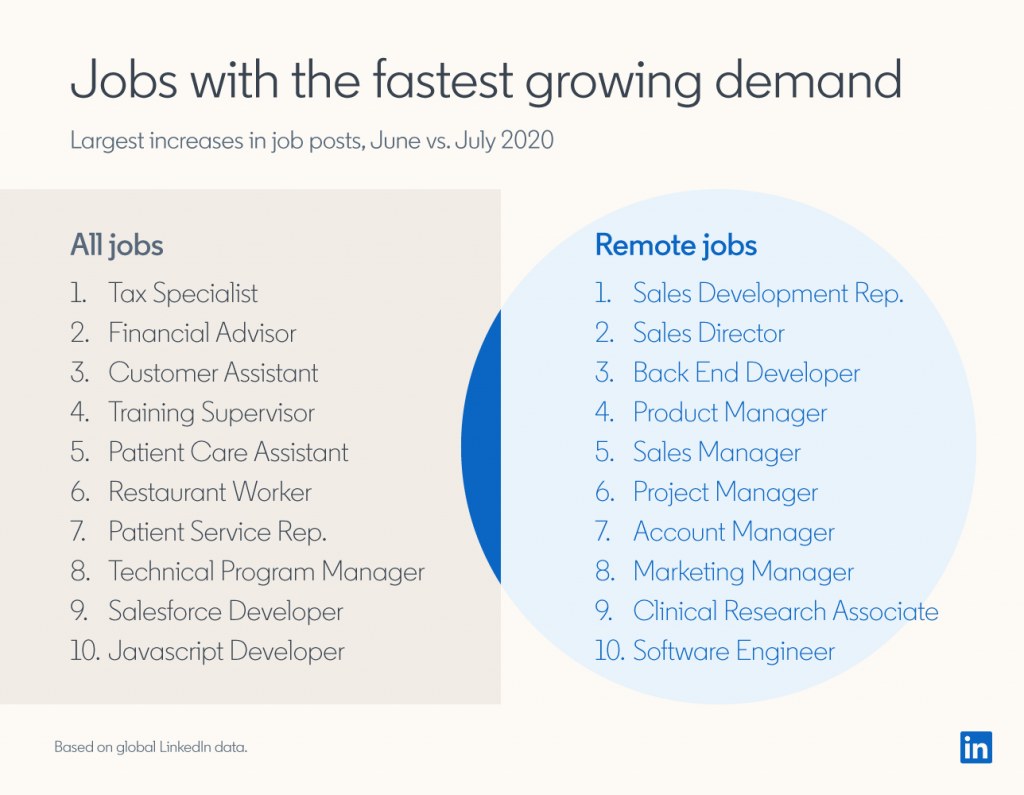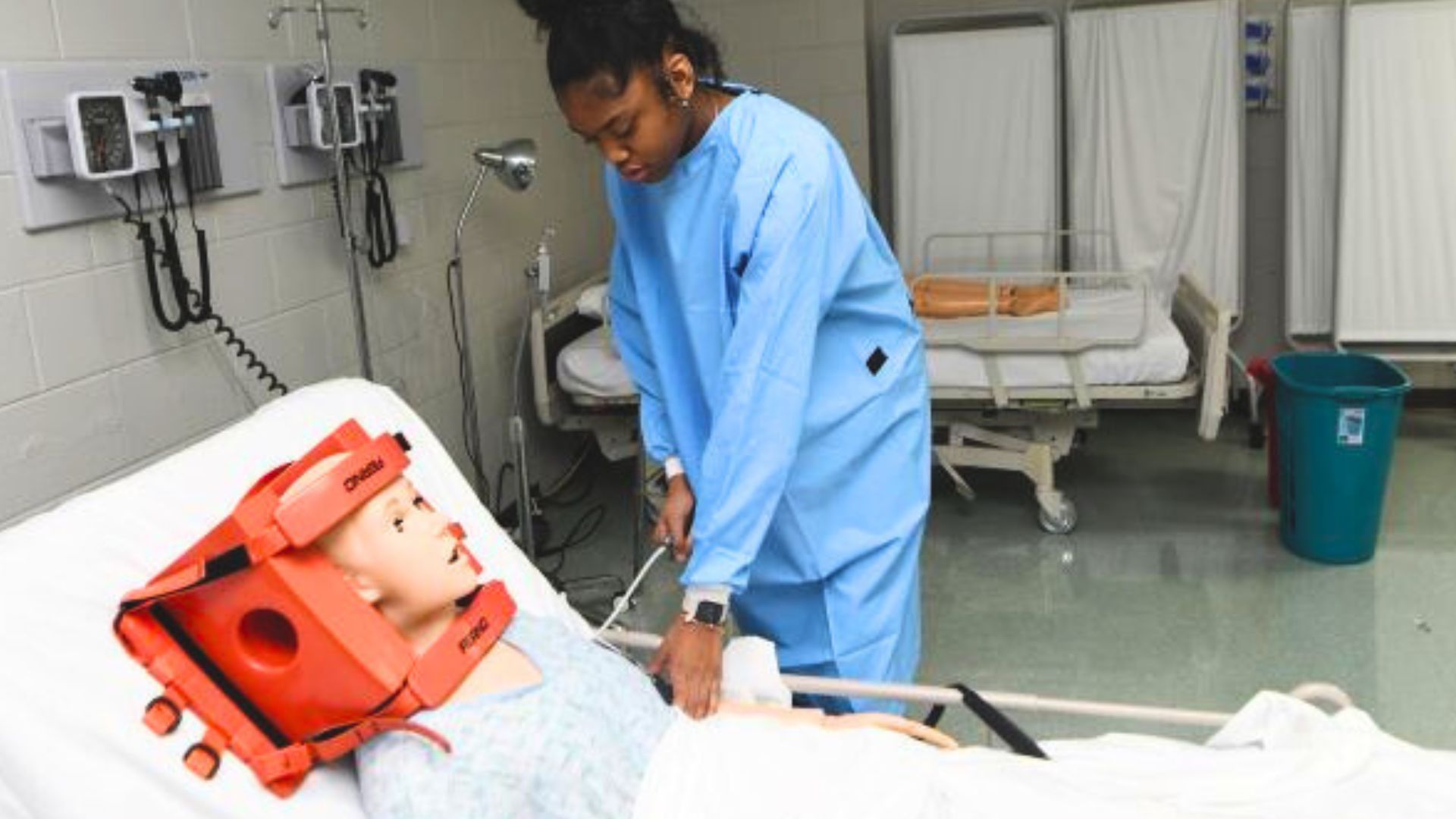Millions remain out of work, but job postings are growing, according to two popular job-posting sites. Demand for frontline workers such as registered nurses and retail workers remains strong, but there is an increased demand in the number of postings for workers in advisory jobs, particularly in health care and finance.
E-commerce Demand is on the Rise
“There’s a lot of economic bad news out there and yet, week after week since about mid-June, there’s been an increase in job openings (on ZipRecruiter),” says Julia Pollak, a labor economist at the online jobs marketplace matching employers with job seekers.
Pollak says e-commerce in particular has seen a big boost. “E-commerce was already growing at about 13, 14, 15 percent a year. That growth has now accelerated about five years. The job titles that are doing the best in terms of job posting volume since COVID are all related to e-commerce.”
This includes high-wage jobs such as web designers. “Any company that’s involved in setting up online stores and helping companies create online payment systems, those are all doing very well. And there are a whole lot of other jobs in warehousing, distribution, delivery that make e-commerce work,” adds Pollak.
Although not a new job, there has been an increased demand for contact tracers who identify people who have interacted with an infected person and then collect data about their contacts.
Pollak says, “These jobs can be done by people who have customer service, problem-solving, call center experience. It’s a job that requires tact and skill, but not necessarily formal credentials.” Pollak also notes, “Organizations are hiring COVID test coordinators. Those are people who arrange testing events for groups of personnel in different companies to make sure the production facilities can remain open.”
As businesses formulate plans for employees to safely return to the workplace, health and safety stewards are on the frontline of these strategies. This position ensures that businesses are thoroughly cleaned and disinfected to industry-specific standards. Another task requires the redesign of the workplace in order to practice social distancing. Pollak says the managing of these safety protocols might be handled by creating a new position, but could also be delegated to an existing employee.
A health-related business that will see continued growth is telemedicine, according to Pollak. She says, “Many existing telemedicine organizations are seeing a surge in traffic leading to hiring of health care call center representatives. I think it’s proved popular with American consumers so it’s going to stick around.”
Pollak says there is opportunity for people with strong soft skills who have lost their jobs in retail or hospitality. “All of those interpersonal skills are in huge demand in health care which is the industry that is projected to add the largest number of jobs over the next 10 years with or without COVID. That’s due to the fact that the population is aging and rates of chronic disease are going up. Those trends are going to stick around. The demand for health care roles spans the education and wage spectrum.”
She adds that many health care jobs do not require a long-term time commitment for training. “Radiation tech, surgery tech, medical assistant, and certified nursing assistant roles do not require very much schooling. I think a certified nursing assistant typically in California requires six to 12 weeks of training.”
Pollak says people who are not currently working can research possible new career routes. “This may be an ideal time for people to invest in those kinds of courses. The four-week, six-week, 12-week-long courses that can set you up for a career in a growing industry where demand probably will never go away.”
Pollak says there is a case to be made for increased investment in broadband infrastructure. She says, “Telecommunication companies have seen smaller job losses than other industries because there is such huge demand at the moment.”
The Most In-Demand Jobs on LinkedIn
“Though the economic recovery from COVID-19 is moving at an uneven and uncertain pace, hiring rates around the world have continued to slowly rebound,” according to a recent LinkedIn Talent blog post citing data it’s collected on the popular site.
The most in-demand jobs remain in frontline roles such as retail salesperson, food delivery, registered nurses, and software engineers.
Software engineer is the most in-demand job when it comes to working remotely and software jobs make up four of the five top spots.

Month over month, there is a growing demand for more advisory jobs, according to LinkedIn, “particularly in finance and healthcare. Coronavirus is both a financial and health crisis, and the fact that demand continues to rise in both these areas may indicate that we’re still only beginning to feel its full effects.”

LinkedIn updates this information every month. You can follow the LinkedIn Talent blog here.











